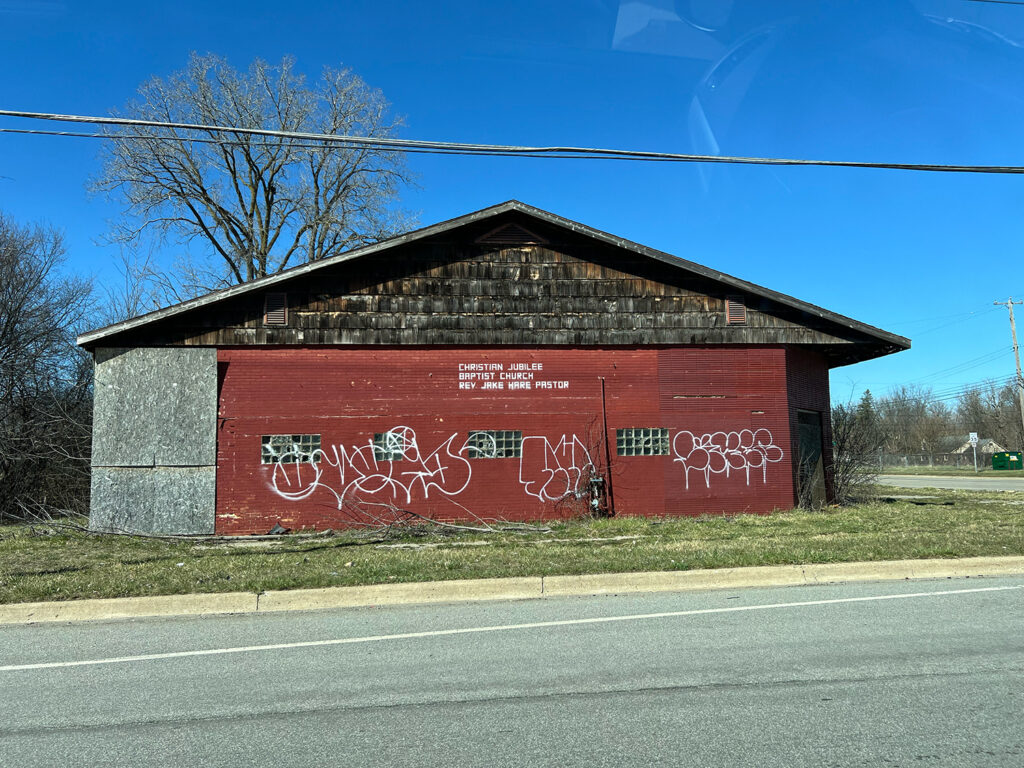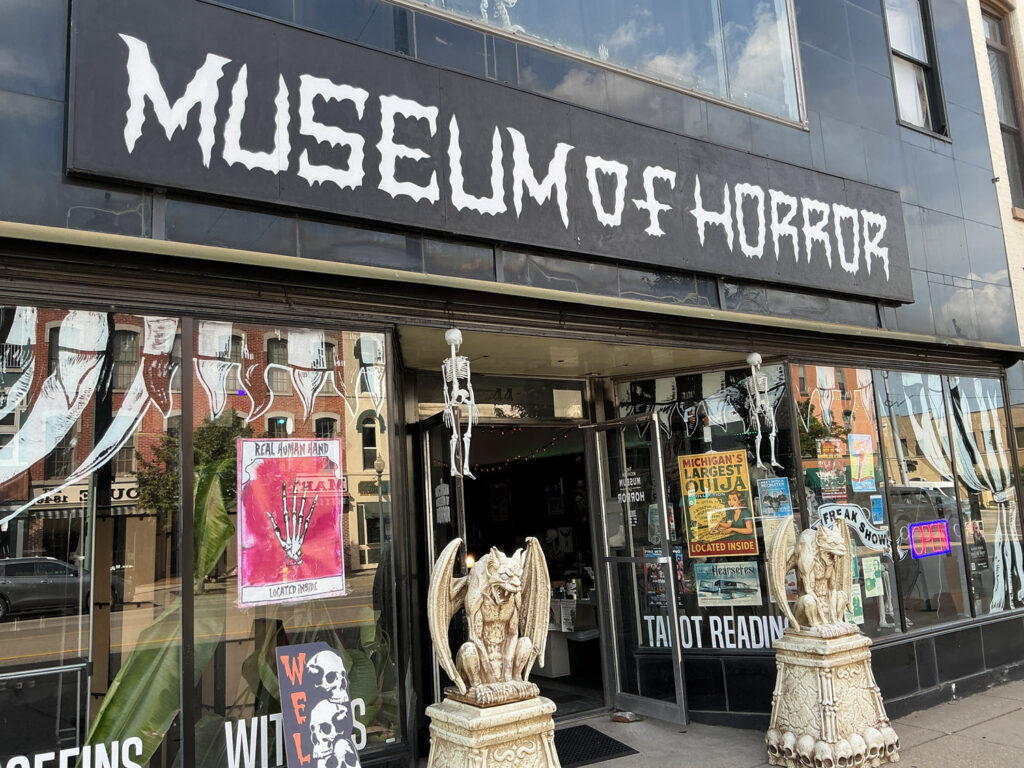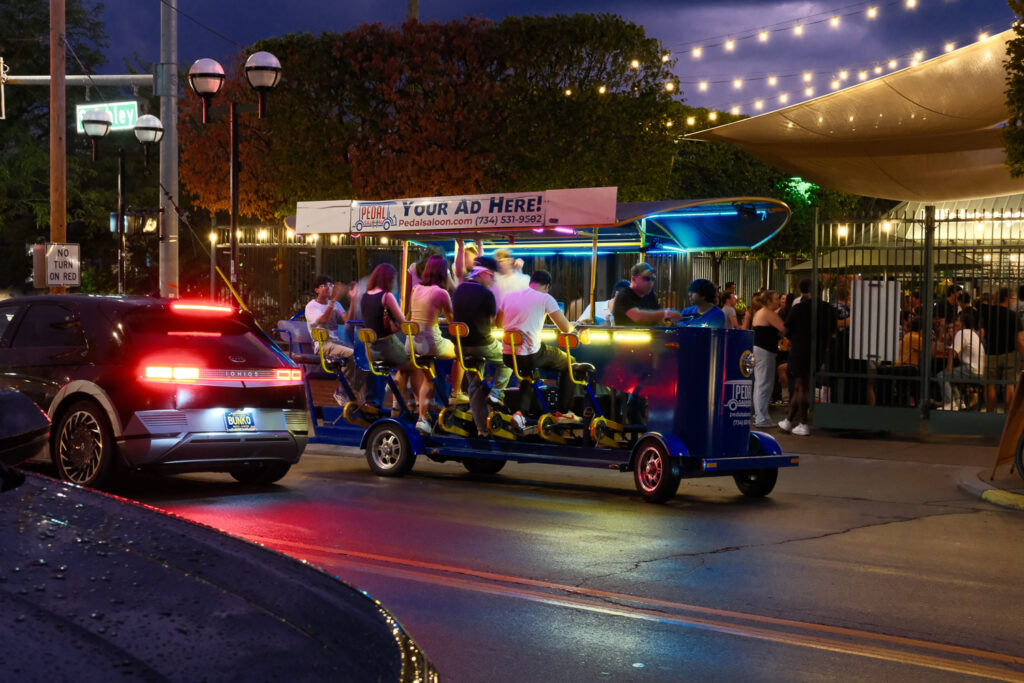Dear Reader,
I won’t bore you with the history of Flint because I don’t know it, and anything I put here would be a rehash of Wikipedia. So, I’ll spare you. My story is one of observation, experience, and heartfelt sympathy for the native residents of the area and surrounding county.
For most in Metro Detroit, Flint is a pass-through city along I-75 as you trek up north to lakefront cottages or a weekend in Mackinaw. If you’re a hockey fan, maybe you’ll head to the Dort Financial Center to take in a Firebirds game. There’s very little else drawing visitors to the city. Flint has been all but forgotten over the last few decades for a litany of reasons, owing to the loss of manufacturing jobs, loss of population, and a breathtaking decline in quality of life. Yes, I’m aware the Flint Water Crisis briefly turned the city into a household name in 2014, but even that was a riff on the fact that Flint has become an afterthought to the ruling elites of the state. And to virtually everyone else too.
My awareness of Flint occurred at or around age 10 in the mid-1980s, when General Motors began closing its automotive plants. Growing up in the suburbs of southeastern Michigan, I wasn’t sure where Flint even was. I knew it wasn’t too far away, as my father had friends in the United Auto Workers who had lost their jobs. Economic distress lingered in the air like a fog. My father, himself a union worker in the building trades, was often upset about it. As an impressionable boy, I felt his sense of anxiety and urgency.
Years later, Michael Moore made his supremely overrated documentary Roger & Me, highlighting the plight of former Flint autoworkers. I read it more like a mockery of working poor residents of the city, while simultaneously celebrating the famous former Flint residents who had escaped. In my teenage years in the early 1990s, my only experiences in Flint were occasional hockey tournaments at the aforementioned Dort Arena, then known as Perani Arena, located right off I-69. I never explored Flint city proper at all.
It never occurred to me that one day I’d plunge into its depths, yet, in 2002, I found myself working on its crumbling and decaying streets. Very dystopian, and that was before “dystopias” were a Hollywood trope. Open lawlessness, buildings abandoned, boarded up, hollowed out, or burned to the ground. The odd collision of nature crashing into an urban cityscape. Lawns uncut with knee-high grass, trees growing up through the cement driveways, and mold climbing on the sides of homes.
The lack of police presence was an alarm constantly blaring in my head as I worked surveillance. Oddly, the adrenaline from being a white suburbanite, working in such a criminally hazardous area, fostered a bizarre clarity that heightened my senses and became addictive. Surveilling a target in Flint is a game of cat and mouse, but with the cat being a fish out of water on the mouse’s turf.
The most obvious black eye for the city is the MTA transit terminal, known more simply as “The Bus Station.” I’ve surveilled multiple targets who travel there, mostly by foot to buy drugs or sex. The terminal operates as a gateway for vice, which is ironic given that it’s located within walking distance of the Flint Police Department. In one instance, I was forced to enter the station, drawing considerable unwanted attention. Even dressed discreetly as a wanna-be gangster, I was easily spotted as an outsider, most likely because I wasn’t strolling like an extra from the Walking Dead. The hyper awareness of everyone inside was optically visible. I was forced to exit, as it appeared my presence was likely to attract violence.
Surveilling a target in Flint is a game of cat and mouse, but with the cat being a fish out of water on the mouse’s turf.
During a second instance, I entered the terminal looking for a police informant known on the street as “Ivan the Russian,” a local drug dealer and diminutive white boy who often cooperated with police as a means to operate unscathed. I managed to speak to a couple people aware of his whereabouts, before I noticed most of the inhabitants had escaped the terminal. They vaporized into thin air like Nightcrawler from X-Men.
After both interactions, I felt none of my normal disgust towards criminality, but instead a sort of odd fascination, maybe even appreciation, for the sort of subterranean existence that those remaining in Flint have been forced to undertake—literally scattering at the sight of any outsider. It’s an odd way to live, and after two decades’ worth of these types of interactions, my Flint adventures have given way to heartfelt understanding for the economically depressed residents of the area and a realization that nobody else seems to care. Not at a city or state level, not at a national level, not even at a human level.

The most pressing issue for Flint is the criminal activity and a prevalent decline in quality of life that levies itself almost like a tax on the residents. This lack of concern is political in nature. Look at the data. The population of Flint has steadily and rapidly declined since it peaked in 1960. According to the census, it was 196,940 then, making it a mid-major American city. As of 2022, the number of residents has declined by over half to 79,854. In the 2022 mayoral election, held during a general election year when turnout is higher than mid-term years, just over a quarter of the population turned out to vote, with 89% of those voting for Democrats.
The implication is clear: There is no Republican base for which the Michigan GOP can compete, and the small mass of monolithic Democrat voters aren’t powerful enough to warrant anything more than lip service from establishment Dems. Factor in the rapidly shrinking tax base from brain drain, and you have the framing for a region and a people that neither political party cares about.
This was made even more ominous to me in person in 2019, when a high-ranking state employee, from a government agency that dealt directly with the Flint Water Crisis, frustratingly confided in me about the perceived lack of interest from the newly inaugurated Whitmer Administration.
“They don’t give a f***in’ s**t because it wasn’t their problem,” he laughed. “Do you think they’d let a crisis like this occur in Northville, Livonia, or Novi? Those are voters nobody wants to piss off.”
It’s not entirely correct that NOBODY cares about Flint. And no, I’m not referring to the celebrities or the politicians who swooped in on private jets during the height of the water crisis to give vapid speeches about systemic racism as they pretended to drink local tap water. Nor am I referring to my own efforts in the shadows of a city upon which a light has been shed, but for which no glimmer of hope has yet appeared.
I’m referring to another type of work in the margins of the region. One that newspapers have no space for. There are ongoing efforts by charitable groups, mostly from churches in suburban southeastern Michigan and the Grand Rapids area, that still run delivery trucks full of bottled water into Flint’s poorest areas. I’ve witnessed these trucks, often unmarked or rentals, driving around the neighborhoods, manned by men unloading cases of water and leaving them on each doorstep. In one instance, I spoke with two males, both white and obviously not from the area, as they delivered pallets of water to a food bank, only to learn they’d come from a church in Grand Haven, Michigan, almost three hours away.
There’s an irony, of course, to that motif. The ruling elites of Michigan at the state level do not care about Flint beyond its use as a wedge to further a particular racial narrative. Locally elected politicians, nonpartisan on paper, take advantage of the progressive one-party rule. Thus, they are not in competition with conservatives in the clash of ideas, but rather quibble with each other over who better represents the social justice optics. But underneath those layers, mostly unseen by the media and most of the nation, are faith-based organizations, detested by liberal elites, quietly offering a helping hand to Flint.
I’ve grown to love Flint, its rustic urban vibe, and the endurance of its working-class people. I still love Flint Firebirds games. I could pay 250 bucks and drive 20 minutes into Detroit to watch the Red Wings, or I could spend 20 bucks and drive an hour to feel like I’m in the movie Slap Shot. Every city block has at least one family—maybe a single dad or mom, or perhaps a boomer aged retiree—trying to get by, stay safe, keep their lawn cut and their house maintained.
An enduring zeal to keep going in a city festooned in hopelessness.
They are numb to the reality of their plight, economically distressed, yet they keep going on muscle memory alone. After so many years working in the city, it would be natural to become jaded, bursting with grievances, and to both pity and mock Flint residents for their sad lot in life. Most people I know do in fact use derogatory vernacular when referring to the city and its residents. Yet, I’m paused and hold fast.
I think of my dad, way back in the 1980s. I recall him in church on Sundays, offering up prayer requests for the people of Flint and his many friends in the city laid off from GM. I remember him calling his boss, trying to find his buddies a job. I remember him telling me to feel fortunate with what we had because many others not so far away from us were suffering hardship. I remember the people of Flint.
J.Z. Delorean is a writer for Michigan Enjoyer and has been a Metro Detroit-based Professional Investigator for 22 years. Follow him on X @Stainless31.



